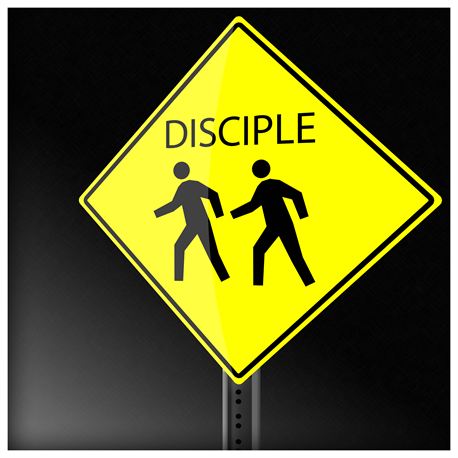The Marks of a Christian Scholar: A Vocational Description (Part Three)[1]
Mark Eckel, ThM PhD, Professor of Leadership, Education & Discipleship
Capital Seminary & Graduate School, Washington, D.C.
By guiding attention we take in our hands the key
to the formation and the development of personality and character. — Lev Semyonovich Vygotsky[2]

My first stint as an educator was chosen by a four letter word: time.
My training was in pastoral studies. But I was being offered a position as a high school teacher in a Christian school. Should I become a teacher, something for which I was not trained? I made my decision based on time.
I asked myself how much influence could I have within a certain amount of time? Teaching five times a week for 45 minutes a day over 180 days a year equals 135 hours per year.
But discipleship was the key to my decision. I added to the amount of class time going to student concerts, games, plays, and graduations. On top of watching student performances, I became involved in taking stats for basketball teams, weight-lifting with athletes, personal counseling, and parties at my home. Being with people was crucial in making my decision to teach.[3] Discipleship is allowing people to be with us in our teaching, in our lives. Discipleship is allowing time for imitation.[4]
Albert Bandura, following the behaviorists, introduced “new” ideas of cognitive repetition with his “bobo doll studies.” Bandura had children watch a video of other children repeatedly knocking down a rubber bounce-back doll. The result of observation was imitation which moved to changed behavior. The children immediately went into the next room to do what they had just seen. Bandura’s observations (attention, retention, reproduction, motivation) emphasized that imitation causes people to demonstrate what they have learned, not to cause learning in and of itself.[5] Bandura concluded, as a good humanist should, that the focus is on self. Response to imitation should be self-regulation, self-determination, self-control, even contractual obligations begun with oneself.

The biblical model, however, forces us to acknowledge that what our students emulate us because of The One we follow (1 Cor 11:1 “be imitators of me as I am of Christ”). 2 Thessalonians 3:7, 9 takes us yet another step. Paul commands (“must”) that the church follow his leadership. Essentially, no teaching can ever be effective outside of the personal lifestyle pattern of the teacher.
Imitating positive role models has ancient roots with philosophers, rabbis, and teachers. But Scripture points to more: Timothy the modeler becomes the model for others (1 Cor 4:17). Paul was not asking the Corinthians to practice anything different from what was done elsewhere “everywhere in every church” (cf. 1 Cor 7:17; 11:16; 14:33, 36). The Corinthians were to become what the Thessalonians had become already—the developmental model which was now the model for others: imitation.
The imitators were imitated, leaving an “example” for others to follow (1 Th 1:6). The Greek for “example” is “type.” Originally the word meant a mark that left a blow or a design stamped on a coin, leaving a pattern—something to be copied and followed (cf. Titus 2:7; 1 Peter 5:3). The word order emphasizes “a result reached.”[6]
Nowhere else does Paul mark a church as an example to follow as he does with Thessalonica (1 Th 1:8). Paul puts developmental theory on notice that in order to model we must “give ourselves” to others (1 Th 2:8). Scripture is clear about sanctification—it is more difficult to “take affect” unless a discipleship lifestyle accompanies the teaching (cf. Gal 4:12; Phil 3:17).

There are other words which further elucidate the model of modeling. “Walk the line” (Rom 4:12; Acts 21:24; Gal 5:25), “follow in his footsteps or tracks” (2 Cor 12:18; 1 Pet 2:21), and “devotion” (1 Tim 5:10, 24) are metaphors which authenticate (cf. Mark 16:20) the talk with the walk. It is possible to follow the wrong behavior (2 Peter 2:2, 15) which is the reason why Bandura’s “operational learning” must submit to The Personal Eternal Triune Creator.
The discipler has a role to play. It behooves us as professors to know Whose disciples we are. The developmentalists can theorize about the process of imitated behavior but have no basis for its authority. We live our lives as disciplers because people “read” us (2 Cor 3:2). May our students know Whom we imitate. May our students find us worthy of imitation. May our students experience our discipleship inside and outside the classroom. May our students mimic the traits they find in us because these traits are found in Scripture. And most of all, may our students know that we always have time to spend with them.

Editor’s note: Click here for all the posts in Mark Eckel’s The Marks of a Christian Scholar: A Vocational Description series.
Notes
- Dr. Eckel has served the Christian educational community for over 30 years; teaching junior high through graduate school. He speaks widely and writes weekly at www.warpandwoof.org. I Just Need Time to Think! Reflective Study as Christian Practice (Westbow, 2014) is his latest book. Dr. Eckel is presently at work writing a book about movies. Mark can be found on Facebook, Twitter (@MarkEckel), and Linked In. Dr. Eckel now practices teaching-learning through a blended format with adult, graduate students. Mark and Robin Eckel live in Indianapolis, IN, sharing their gifts in their local church, Crossroads Community, Fishers, IN.↩
- Vygotsky, L.S. 1997. Educational psychology. Reprint, Boca Raton, FL: St. Lucie Press, 133.↩
- Mark Eckel, “Time,” 11 June 2013, http://warpandwoof.org/cultural-practical/2592/↩
- The connection between developmental psychology and Scriptural precedent is found in Paul’s words, “I urge you to imitate me” (1 Cor 4:16, see 4:14-21 for the whole context). Every time the noun form of “mimic” is used in the New Testament (we get our English word directly from the Greek; cf. 1 Cor 11:1; Eph 5:1; 1 Th 1:6; 2:14, etc.) the verb ginomai gives the action–“to become.” The present imperative drives the imitator to develop character based on the given model. In short, the biblical framework informs every developmentalist’s model.↩
- Anthony, Michael J. 2001. Albert Bandura. In Evangelical dictionary of Christian education. Edited by Michael J. Anthony, Grand Rapids, MI: Baker, 63-64.↩
- Morris, Leon. 1979. The first and second epistles to the Thessalonians. Reprint, Grand Rapids, MI: Eerdmans (page references are to the reprint edition), 59-60. We have an expectation for results but know that results are left up to God so our ministries are not “results-oriented.”↩
Dr. Mark Eckel is adjunct professor for various institutions, President of The Comenius Institute (website), spends time with Christian young people in public university (1 minute video), hosts a weekly radio program with diverse groups of guests (1 minute video), interprets culture from a Christian vantage point (1 minute video), teaches weekly at his church (video) and writes weekly at his website warpandwoof.org.

Mark, I have really enjoyed reading these and they are a good reminder of the impact that teachers can have on their students. I am wondering what your thoughts are on online education. Since it is such a large part of the education model for the future, how do we as educators “replicate” the idea of discipleship into a removed context like the online world? It seems like that it should be the case that distance can be overcome – but what about relationship? How is that built in the virtual world? And what about the fact that I probably will never have any of these students again in my classes? How does discipleship happen in that situation?
Thanks for your query Mike. As a whole I would say that what Paul was doing in his ministry is exactly what I do in mine. I believe in a cohort-individual-online-incarnational style of instruction. I think Paul practiced the same. He (generally) had met those to whom he wrote (incarnational), sent letters (online), referenced persons and groups (individuals and cohorts). Indeed, the book of Romans could be understood as the first MOOC! 🙂 The adult learners I engage now have immediate and long-standing affinity with me even over electrons and miles because we have met face-to-face. While I believe the locale is imperative (my local church, for instance, is my immediate discipleship community) the discipleship with my adult learners continues over the years. We continue to correspond even though we hardly ever meet again. But I would say that the essence of fellowship is intentionality. I can live in a community but never make the effort to disciple people. Even though I long to see my students (note Paul’s similar sentiments throughout his epistles) the discipleship continues because it is intentional.